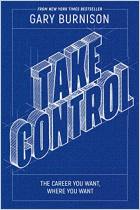
Book
Next Move, Best Move
Transitioning Into a Career You'll Love
Recommendation
Professionals often change jobs, or even industries, throughout their lifetimes. Career development coach and professor Kimberly Brown has spent more than a decade teaching people how to take control of their careers and find fulfillment at work. In this helpful guide, Brown shares her journey through different careers and offers helpful lessons in determining when it’s time for a change, negotiating the right salary for your level of expertise and other aspects of career transitions. Brown encourages you to reinvent yourself, go after your dream job and take control of building your career.
Summary
About the Author
Kimberley Brown is a career coach, professor and career development director.
By the same author
Learners who read this summary also read
Book
Book
Book
Book
Book
















Comment on this summary